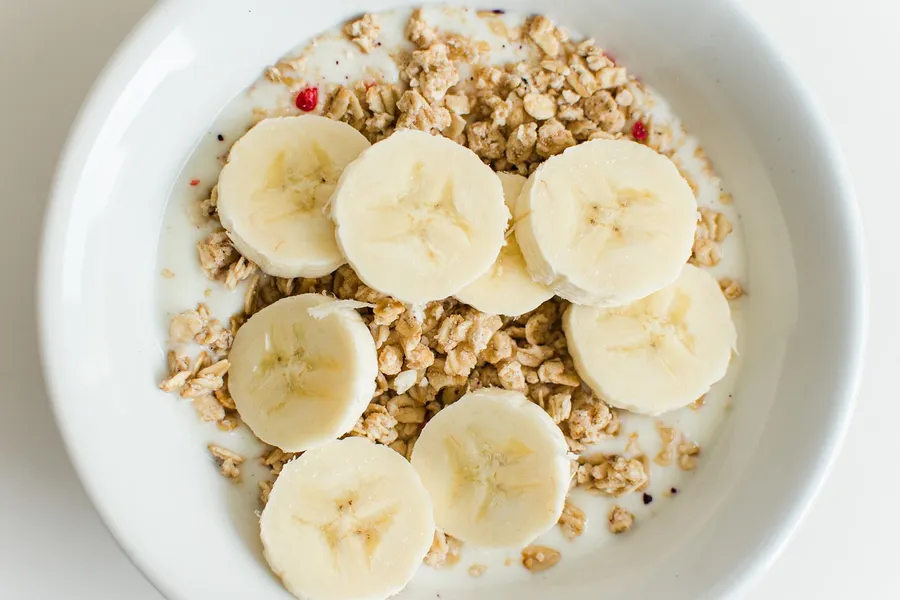Bananas are the fruit of the banana tree, native to tropical regions, and are one of the most consumed fruits in the world. A favorite of everyone from kids to athletes, let’s take a look at the benefits and misconceptions of bananas.
Bananas are a delicious, nutritious, peel-and-eat fruit that is recognized by the American Medical Association as a healthy food for children. They can be eaten for breakfast, enjoyed as a snack, or used as an ingredient in a variety of dishes.
But for such a common fruit, there’s a lot of misinformation and misconceptions about it, so we’re going to take a look at the benefits of bananas and clear up some of the myths.
Table of Contents
Benefits of Bananas

Bananas are an iconic fruit that’s loved around the world, and in addition to their flavor, they contain a variety of nutritional benefits. Some of the key benefits include
- Replenish energy: If you watch athletic events, you’ve probably seen athletes eating bananas because they contain natural carbohydrates, which are quick to digest and provide an instant source of energy to help you recover from fatigue.
- Digestive health: They are rich in dietary fiber, which promotes gut health and helps prevent constipation. Green bananas contain resistant starch, which promotes the growth of beneficial bacteria, and ripe bananas can help relieve heartburn by neutralizing stomach acid.
- Keep your heart healthy: Bananas are high in potassium, which is good for blood pressure control and heart health. Potassium plays an important role in helping to flush out and stabilize sodium from the body.
- Stress relief: The tryptophan in bananas is involved in the production of serotonin, the happy hormone, which helps improve mood.
- Manage your weight: Bananas are relatively low in calories and high in fiber to keep you feeling full, making them an ideal snack.
- Improve athletic performance: Natural electrolytes help prevent muscle cramps that occur during exercise and aid in post-workout recovery.
- Skin and hair improvement: Vitamins A, B6, and C keep skin healthy and elastic, and their antioxidant properties help prevent aging.
To summarize, bananas are a natural source of carbohydrates that provide quick energy, along with essential nutrients like potassium, vitamin B6, and magnesium. Potassium, in particular, is effective in maintaining electrolyte balance and preventing muscle cramps.
Bananas are also rich in antioxidants and fiber, which improve cardiovascular health and support digestive function. They also contain natural sugars, which help to keep you feeling full and keep your blood sugar stable, making them an effective diet aid. Bananas also contribute to skin health and immunity.
▶ Go to Harvard University’s Benefits of Bananas page
Recommended intake method

As with all foods, too much of anything is not good, so one to two bananas a day is a good limit. You can eat nuts or yogurt with your banana to balance out the nutrition.
- Eat as a snack: They’re easy to peel and eat, making them perfect for a quick energy boost on a busy morning or before or after a workout.
- Smoothies or juices: Bananas can be blended with milk, yogurt, and other fruits to make a smoothie.
- Toppings: Bananas can be used as a topping for oatmeal, cereal, pancakes, and waffles to add flavor and nutrition.
- Bake and cook: You can roast bananas in the oven and enjoy them for dessert, or use them as an ingredient in baked goods like banana bread and muffins. Baked bananas have a sweeter flavor, making them a great snack.
What to watch out for when eating bananas
- Diabetes: Bananas are high in sugar, so people who need to control their blood sugar should avoid excessive consumption.
- Allergies: Some people may be allergic to bananas, so use caution.
- Overripe bananas: Overripe bananas can quickly spike blood sugar, so moderation is the way to go.
How to store bananas

It is common to store bananas at room temperature rather than in the refrigerator. Storing bananas at room temperature allows them to ripen naturally and prevents changes in flavor and texture.
The ideal storage temperature is room temperature, between 12 and 15 degrees. Keep in mind that bunches of bananas can ripen quickly, so storing them separately will slow down the ripening process.
If you store bananas that are already fully ripe in the refrigerator, the flesh will stay fresh for a long time. However, the skin may turn black. It’s a good idea to put them in a plastic bag or separate them from other fruit when storing them in the refrigerator to prevent the peel from turning.
Myths and truths about bananas

If you eat a lot of bananas, you will gain weight.
At 89 calories per 100 grams, bananas don’t cause weight gain when eaten in moderation; rather, they can reduce hunger pangs and prevent overeating.
Eating bananas on an empty stomach is bad for the stomach.
Bananas are soft, easy to digest, and don’t hurt on an empty stomach; in fact, they’re known to have gastroprotective properties.
Overripe bananas are bad for you.
Ripe bananas are more easily digested and have increased antioxidant content. They are higher in sugar, so diabetics should avoid overconsumption, but they are generally not unhealthy.
Banana peels are full of harmful substances.
Banana peels are edible, and are actually used in cooking in some cultures. However, they should be washed thoroughly due to possible pesticide residue.
Bananas are a fruit loved by many people for their flavor and nutrition. When eaten in moderation, they have great health benefits. Bananas can be eaten on an empty stomach, and ripe bananas are not harmful to your health.
Some people avoid bananas due to misinformation, but with the above benefits and misconceptions, you can enjoy the flavor and nutrients of bananas.
▶ A daily glass of health! Benefits of Lemon Water and How to Drink It
▶ The anti-cancer benefits of Sang-Hwang Mushroom and how to eat them effectively





